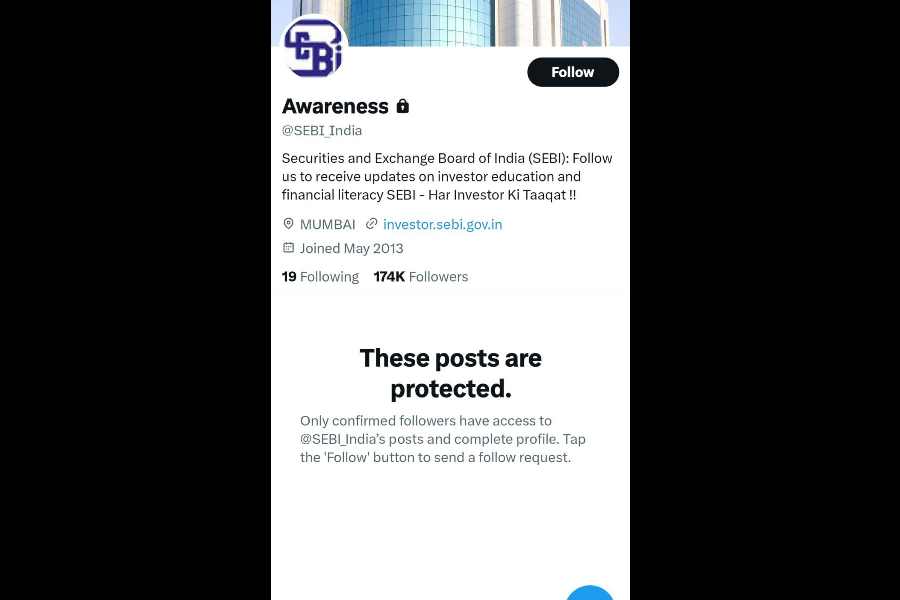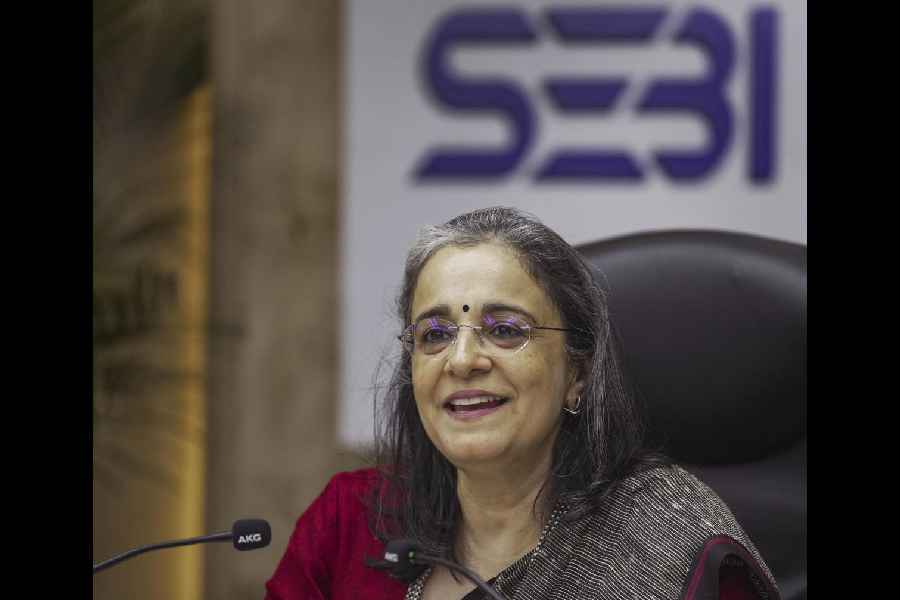The latest explosive revelations from Hindenburg Research squarely puts market regulator Sebi in the dock.
“We suspect that Sebi’s unwillingness to take meaningful action against suspect offshore shareholders in the Adani group may stem from chairperson Madhabi Buch’s complicity in using the exact same funds used by Vinod Ambani, brother of Gautam Adani,” the US short seller said in a fresh set of revelations released late on Saturday.
The report recounted that Sebi had informed the Supreme Court last August that it had “drawn a blank” in its investigations into who funded Adani’s offshore shareholders.
“If Sebi really wanted to find the offshore fund holders, perhaps the Sebi chairperson could have started by looking in the mirror,” Hindenburg said in a caustic barb against the market regulator.
The charge against Puri-Buch is that she had investments in a Bermuda fund called Global Opportunities Fund (GDOF) as well as a “small and obscure offshore fund registered in Mauritius” called IPE Plus Fund 1.
The claim is that the Vinod Ambani-controlled GDOF had routed funds received from the Adani group through the Mauritius fund into Indian equities, derivatives and other financial instruments.
The report claimed: “Documents show Sebi Chairperson Madhabi Buch and her husband had stakes in a multi-layered offshore fund structure with miniscule assets, traversing known high-risk jurisdictions, overseen by a company with reported ties to the Wirecard scandal, in the same entity run by an Adani director and significantly used by Vinod Adani in the alleged Adani cash siphoning scandal.”
The Wirecard scandal pertains to a series of corrupt business practices and fraudulent financial reporting that led to the insolvency of Wirecard, a payment processor and financial services provider, headquartered in Munich, Germany.

Hindenburg said a separate investigation by the Financial Times had earlier shown that the parent fund of GDOF 1— the Bermuda-based Global Opportunities Fund (GOF) — was used by two Adani associates “to amass and trade large positions in the shares of the Adani group”.
The Hindenburg report says GDOF and IPE Plus Fund 1 were part of an elaborate chain of “nested funds”.
There are two other damaging accusations made against Puri-Buch and her husband Dhaval.
The first is that Madhabi Buch, even when she was a whole-time member with Sebi, had a 100 per cent interest in an offshore Singaporean consulting firm called Agora Partners.
It was only two weeks after she was appointed as Sebi chairperson in March 2022 that she “quietly transferred the shares (in Agora) to her husband”.
Agora is exempt from disclosing financial statements in Singapore. “So it is unclear the amount of revenue it derives from the consulting business,” Hindenburg said.
Second, it was during Puri-Buch’s term as a whole-time member of Sebi that her husband Dhaval was appointed as a senior adviser to Blackstone in 2019.
“He had not worked for a fund, in real estate or capital markets before,” Hindenburg claimed.
Hindenburg says Blackstone has been one of the “largest investors and sponsors of REITS, a nascent asset class in India. The acronym stands for Real Estate Investment Trusts.
India’s first-ever REIT — Embassy — obtained Sebi approval and launched an initial public offering (IPO) in April 2019 just three months before Dhaval joined Blackstone.
Thirteen months later, in August 2020, Mindspace REIT — which was also backed
by Blackstone — became India’s second REIT to go for an IPO.
“During Dhaval Buch’s time as adviser to Blackstone, Sebi has proposed, approved and facilitated major REIT regulation changes,” the report added.











